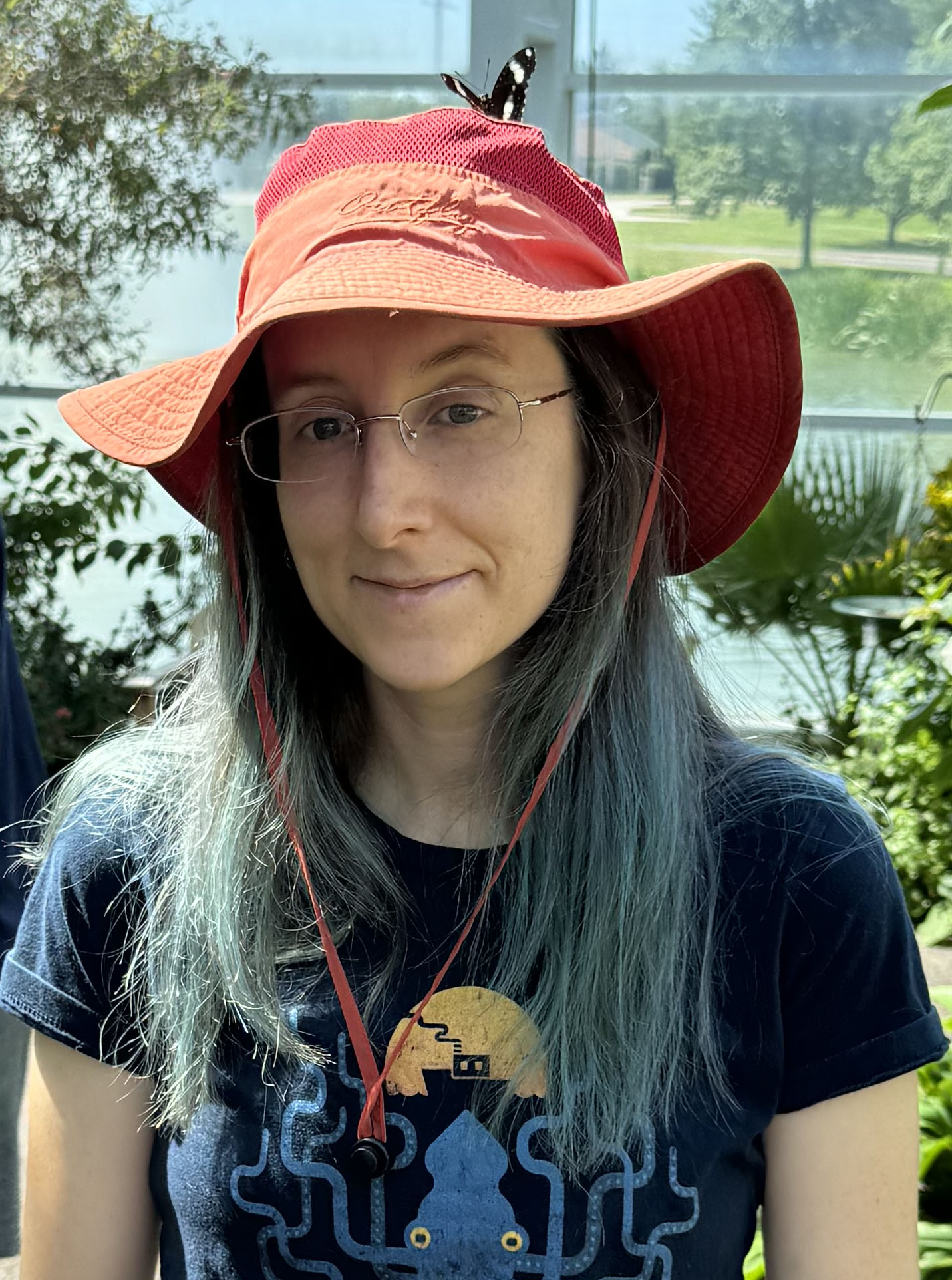Margaret Steele, Ph.D.
Email: margaret.steele@ttu.edu
Phone: +1 (806) 834-7873
Bacterial Genetics, Microbial Evolution, Microbial Ecology, Symbiosis, Host-Pathogen Interactions, Bioinformatics
Research Groups:
Office Number: 609B

Education & Teaching
Degrees and Positions:
- Postdoctoral Research Associate/Postdoctoral Fellow (NSF), Washington University in St. Louis (2020-2025)
- PhD., Microbiology, The University of Texas at Austin (2020)
- B.A., Biology and Biochemistry, Whittier College (2013)
Teaching:
- MBIO 4406/5408 Microbial Genetics
- MBIO 4401/5401 Microbial Ecology
- MBIO 3400/3401 Microbiology
Research Interests:
The Steele lab works with bacteria associated with the bactivorous soil amoeba Dictyostelium discoideum to investigate the evolution of predation resistance, virulence, and symbiosis. We use a combination of molecular biology and microbiology techniques, comparative genomics, phylogenetics, transcriptomics, and transposon mutagenesis to understand the molecular mechanisms underlying host-microbe interactions.
As a model system, D. discoideum has been used for decades to study a range of processes including chemotaxis, cell differentiation, development, virulence mechanisms of human pathogens, and the evolution of altruism. In its natural ecological role, D. discoideum is both a voracious generalist predator and a host for a variety of intracellular pathogenic bacteria. By identifying genes used by bacteria to interact with D. discoideum, we seek to understand the evolutionary processes that determine whether bacteria become symbionts or pathogens. We focus on two bacterial genera that associate with D. discoideum in nature and represent two different strategies for handling predation: free-living Pseudomonas and facultatively endosymbiotic Paraburkholderia.
Current Research Projects:
Current research projects include:
- Characterizing the role that the transcription factor GacA plays in predation resistance in multiple Pseudomonas lineages
- Measuring the effect of cooperation and cheating on predation resistance in Pseudomonas
- Identifying genes required by endosymbiotic Paraburkholderia to survive inside the host phagosome to better understand the molecular mechanisms at work
- Investigating the effect of Paraburkholderia infection on phagosome maturation in discoideum
Publications
- Steele, M.I., Peiser, J.M.*, Shreenidhi, P.M., Strassmann, J.E., Queller, D.C. 2023. Predation-resistant Pseudomonas bacteria engage in symbiont-like behavior with the social amoeba Dictyostelium discoideum. The ISME Journal. 17:2352-2361.
- Steele, M.I., Motta, E.V.S., Gattu, T.*, Martinez, D.*, and Moran, N.A. 2021. The gut microbiota protects bees from invasion by a bacterial pathogen. Microbiol Spectr 9:e00394-21.
- Steele, M.I. and Moran, N.A. 2021. Evolution of interbacterial antagonism in bee gut microbiota reflects host and symbiont diversification. mSystems. 6(3):e00063-21. doi: 10.1128/mSystems.00063-21.
- Zheng, H., Steele, M.I., Leonard, S.P., Motta, E.V.S., Moran, N.A. 2018. Honey bees as models for gut microbiota research. LabAnimal. 47: 317-25. doi: 10.1038/s41684-018-0173-x
- Kwong, W.K., Steele, M.I., Moran, N.A. 2018. Genome sequences of Apibacter spp., gut symbionts of Asian honey bees. Genome Biology and Evolution. 10(4): 1174-9. doi: 10.1093/gbe/evy076.
- Steele, M.I., Kwong, W.K., Whiteley, M., and Moran, N.A. 2017. Diversification of type VI secretion system toxins reveals ancient antagonism among bee gut microbes. mBio. 8(6): e01630-17. doi: 10.1128/mBio.01630-17.
- Zheng, H., Powell J.E., Steele, M.I., Engel, P., Moran, N.A. 2017. Honeybee gut microbiota promotes host weight gain via bacterial metabolism and hormonal signaling. Proceedings of the National Academy of Sciences USA. 114(18): 4775-80. doi: 10.1073/pnas.1701819114.
- Zheng, H., Nishida, A., Kwong, W.K., Koch, H., Engel, P., Steele, M.I., and Moran, N.A. 2016. Metabolism of toxic sugars by strains of the bee gut symbiont Gilliamella apicola. mBio. 7(6): e01326-16. doi: 10.1128/mBio.01326-16.
* Undergraduate researchers
Department of Biological Sciences
-
Address
Department of Biological Sciences, Texas Tech University, Box 43131 Lubbock, TX 79409 -
Phone
806.742.2715 -
Email
biology@ttu.edu
